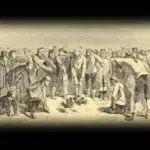The American Association for the Advancement of Science Week takes place from February 9 to 12 this year. Many of the achievements that people take for granted in the world today may be attributed to science education. The plethora of scientists who offered life-changing inventions may not have been able to do so if it hadn’t been for education in the many areas of science throughout the last few centuries. The American Association for the Advancement of Science (A.A.A.S.) is a non-profit organization based in the United States dedicated to promoting scientific cooperation, defending scientific freedom, encouraging scientific responsibility, and supporting science education and outreach for the benefit of all humanity. With over 120,000 members, it is the world’s biggest general scientific organization and the publisher of the well-known scientific publication “Science.”
History of American Association For the Advancement of Science Week
On September 20, 1848, the American Association for the Advancement of Science was founded within the Academy of Natural Sciences in Philadelphia, Pennsylvania. The American Association of Geologists and Naturalists was reorganized. William Charles Redfield was elected as the society’s first president because he offered the most complete ideas for the organization. The purpose of the organization, according to the initial constitution agreed to at the September 20 meeting, was to encourage scientific conversation in order to allow for more scientific collaboration. The group hoped that by doing so, it would be able to employ resources more efficiently, allowing for faster scientific development. Through active science advocacy, the organization also aimed to expand the resources accessible to the scientific community. When the A.A.A.S. was founded, there were just 78 members. Matthew Fontaine Maury, U.S.N., a member of the new scientific group, was among those who attended the inaugural 1848 conference.
By 1860, the number of members had risen to almost 2,000. During the American Civil War, the A.A.A.S. went into hibernation; their August 1861 conference in Nashville, Tennessee, was postponed indefinitely after the commencement of the war’s first major action at Bull Run. However, the A.A.A.S. did not perish as a result of the conflict.
Another interdisciplinary research body, the National Academy of Sciences, was created by the United States Congress in 1863. It chooses its members based on peer recommendations and the worth of published publications.As a result, the week’s focus is on advancing science, engineering, and innovation across the world for the benefit of all people.
American Association For the Advancement of Science Week timeline
On September 20, the American Association for the Advancement of Science is founded within the Academy of Natural Sciences in Philadelphia, Pennsylvania.
During the American Civil War, the A.A.A.S. goes into hibernation; their August conference in Nashville, Tennessee, is postponed indefinitely after the commencement of the war's first major action at Bull Run.
Another interdisciplinary research body, the National Academy of Sciences, is created by the United States Congress.
The most recent A.A.A.S. Constitution states that the organization will be governed by four entities: a president, a group of administrative officials, a council, and a board of directors.
American Association For the Advancement of Science Week FAQs
Who is the A.A.A.S.'s owner?
The federal government is the A.A.A.S.’s most visible source of support.
What is the significance of observing Association for the Advancement of Science Week?
The goal of the Association for the Advancement of Science Week is to inspire young people to get interested in science and appreciate its significance.
What action did the American Association for the Advancement of Science take?
The A.A.A.S. aspires to develop science, engineering, and innovation for the benefit of all people across the world.
American Association For the Advancement of Science Week Activities
Learn more about science education
The best way to honor this day is to learn something about science. Visiting a science museum (or giving a contribution to one) is an excellent way to demonstrate support and gratitude for the numerous improvements made possible by science.
Make some time to share
American Association for the Advancement of Science Day is the best day to reflect on a great educational experience, exchange photos, or volunteer. This is an excellent moment for science instructors to share their classrooms, favorite laboratories, fantastic activities, and photographs.
Watch science education programs
It might just be a YouTube video that explains a scientific idea or a feature-length documentary that educates on scientific viewpoints. Even the capacity to watch science broadcasts on television at home is a scientific advancement!
5 Important Facts About Science
Neutron stars
Neutron stars are the remains of big stars that died in a supernova explosion.
Metal combusts at contact with water
Certain reactive metals, such as potassium, sodium, lithium, rubidium, and cesium, tarnish rapidly when exposed to air and explode when dropped in water!
Hawaii moves closer
Every year, Hawaii moves roughty three inches closer to Alaska — this is created by tectonic plates that are constantly moving, propelled by currents that rise and fall underneath them.
A laser can become entangled in water
When you focus a laser beam onto a jet of running water, a fascinating phenomenon known as "total internal reflection" occurs.
A cloud weighs one million pounds
According to the U.S.G.S., the typical cumulus cloud may weigh up to a million pounds.
Why We Love American Association For the Advancement of Science Week
It helps satisfy human needs
Society loves science because the application of scientific knowledge helps to meet many basic human needs and enhance living standards. Finding a cure for cancer and developing a clean source of energy are only two recent examples.
It contributes to education
It is past time to seriously consider how science and research can contribute to education at all levels of society. This is not just by engaging more people in research and teaching them about scientific knowledge, but also by providing them with a fundamental understanding of how science has shaped the world and human civilization.
It increases the quality of life
It serves a specific goal as well as a variety of functions for the benefit of our society, such as the development of new knowledge, the advancement of education, and the improvement of our quality of life. Science must address both societal needs and global issues.
American Association For the Advancement of Science Week dates
| Year | Date | Day |
|---|---|---|
| 2022 | February 13 | Sunday |
| 2023 | February 12 | Sunday |
| 2024 | February 11 | Sunday |
| 2025 | February 9 | Sunday |
| 2026 | February 8 | Sunday |





























